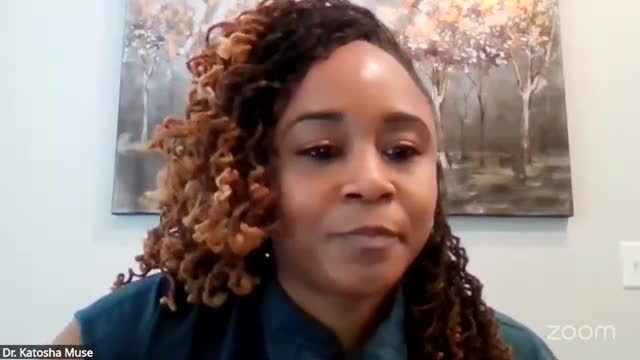Board executive committee grants two telehealth exemptions and denies several other requests
Get AI-powered insights, summaries, and transcripts
Subscribe
Summary
The State Board of Medical Licensure executive committee met by Zoom and approved exemptions for a St. Jude pediatric telehealth hub and an inpatient geriatric psychiatry collaboration, while denying a cross‑state supervision request, a retired psychiatrist’s exception and one foreign‑trained applicant’s license.
The State Board of Medical Licensure executive committee on Zoom approved two telehealth exemptions and denied several other requests during a meeting that centered on how Mississippi rules apply to remote supervision.
The committee voted to grant an exception to the board’s 80/20 rule for Dr. Rohit Jesudas of St. Jude Children’s Research Hospital, allowing nurse practitioners licensed in Mississippi to provide follow‑up telemedicine care to pediatric hematology patients at a Tupelo telehealth clinic. Dr. Jesudas said the program reduces travel burdens for families and helps patients remain on hydroxyurea, the primary disease‑modifying therapy for sickle cell disease. "I'm requesting an exception for the 80 20 rule," he told the committee, and outside counsel described the request as served "for good cause," noting the nurses and physician are licensed in Mississippi and the clinic performs same‑day vitals and some lab draws locally.
The committee also approved exemptions requested by Dr. Shamalyn Johnson, who described her role as medical director of an inpatient geriatric psychiatry unit in Meridian and said she reviews notes, signs admissions and participates in weekly treatment planning via the hospital’s EPIC system. Johnson asked for relief from the 80/20 rule and the 75‑mile requirement so she may supervise two Mississippi‑based nurse practitioners who provide inpatient care; a motion to grant her request passed on a voice vote.
Not every request succeeded. The committee denied a request by a Memphis‑based family medicine physician, Dr. Muse, who had sought an exception to the board’s 75‑mile rule to be the supervising physician of nurse practitioners employed by a gastroenterology‑focused telemedicine company. After taking the matter into executive session, the committee returned to open session and the secretary, Dr. Rod Givens, announced the request had been denied and suggested the applicant follow up with Executive Director Cleveland on Monday.
The board also considered whether a clinician who said he was transitioning out of regular office practice should be allowed to count remote collaboration toward active practice. Dr. Daniel Smith, a psychiatrist who described plans to move to a primarily non‑office role while collaborating with Mississippi nurse practitioners, asked for exceptions to the 75‑mile and 80/20 rules. Committee members described the situation as "new ground" and a potential precedent; a motion to deny Smith’s request was adopted, with the chair indicating the rules‑and‑regulations committee should consider any policy changes.
Separately, the committee reviewed an appeal by Dr. Vikash Raja, a foreign‑trained neurologist who reported multiple U.S. licenses and fellowship work but whose fellowship certifications were found not to meet the board’s ACGME‑accreditation requirement. The committee voted to deny his licensing request. Dr. Raja asked whether his $560 application fee could be refunded; the board told him no.
What the committee said and why it matters
Board members repeatedly framed the decisions around the limits of the board’s current rules: the 75‑mile requirement for supervising physicians, the 80/20 active‑practice rule and the requirement that certain fellowship training be ACGME‑accredited. Executive Director Cleveland and board staff told members that applications are vetted by licensing staff and brought to the committee when questions about rule compliance arise.
The votes show the committee distinguishing two types of telehealth arrangements: ongoing specialty programs with in‑state licensing and local telehealth clinic sites (approved), versus remote supervision across state lines for a practice the committee regarded as not sufficiently compatible with the applicant’s normal scope or with board rules (denied). As a result, the committee approved targeted exemptions intended to preserve access (pediatric hematology follow‑ups and inpatient geriatric psychiatry) while declining to set broader precedents on cross‑state remote supervision or counting primarily remote collaboration as active practice.
Votes at a glance
- Grant — Exception to 80/20 rule for Dr. Rohit Jesudas (St. Jude telehealth program). Motion moved and seconded; approved by voice vote. (topic provenance: SEG 303 → SEG 568) - Grant — Exemptions for Dr. Shamalyn Johnson (inpatient geriatric psychiatry supervision). Motion moved and seconded; approved by voice vote. (topic provenance: SEG 591 → SEG 783) - Deny — Exception to 75‑mile rule for Dr. Muse (telehealth nurse practitioners supervised outside Mississippi). Committee entered executive session and returned to deny; announced by Dr. Rod Givens. (topic provenance: SEG 241 → SEG 299) - Deny — Exception request by Dr. Daniel Smith (retiring/transitioning psychiatrist). Motion to deny adopted; committee directed possible referral to rules committee for policymaking. (topic provenance: SEG 794 → SEG 1076) - Deny — Licensing appeal by Dr. Vikash Raja (fellowship not ACGME‑certified). Motion to deny adopted; applicant told application fee nonrefundable. (topic provenance: SEG 1086 → SEG 1246)
Context and next steps
Board staff and members said the committee acted to preserve patient access where the applicant met in‑state licensing and local clinic support, and to avoid creating new licensing precedents without fuller board review. Several members urged the rules‑and‑regulations committee to consider clearer language about whether remote collaboration counts as active practice and under what conditions exemptions should be granted.
The committee’s executive director report noted ongoing participation with the Federation of State Medical Boards and forthcoming interstate licensure compact meetings; the committee adjourned after that report.
Sources and attribution
This account is based solely on the executive committee’s Zoom meeting transcript. Direct quotations and attributions are taken from speakers who appeared by Zoom or in the meeting record: Dr. Rohit Jesudas, Dr. Shamalyn Johnson, Dr. Rod Givens and Executive Director Cleveland.
